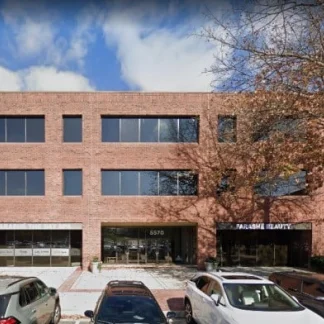Brooktree Health Services
Brooktree Health Services is a private rehab located in Columbia, Maryland. Broo...
Columbia Addictions Center (CTC) is a substance abuse addiction rehab in Columbia, MD for adolescents and adults. It offers a nurturing space where individuals with substance use and related disorders can find holistic pathways to recovery.
With a diverse suite of programs and a team of dedicated professionals, the center focuses on creating a tailored experience for every individual.
Columbia Treatment Center understands the intricate tapestry of addiction. At the core of their offerings is substance abuse counseling, a personalized journey where individuals work closely with skilled counselors. Together, they explore the root causes of addiction, establish coping mechanisms, and set the stage for lasting recovery. These sessions offer a deep dive into personal challenges, providing the insights and strategies required to build a substance-free life.
Columbia Treatment Center’s outpatient treatment allows clients to access high-quality care while maintaining their daily routines. This approach is especially beneficial for those who’ve already undergone intensive treatments and are looking to sustain their progress. The program combines structured therapy sessions, educational workshops, and group activities.
Recognizing the importance of education in prevention, Columbia Treatment Center provides a robust DWI/DUI Education Program. Here, participants are equipped with essential knowledge about the dangers of impaired driving, the legal implications, and the broader societal impact.
Contact us for more information: (410) 730-1333

Connect with Columbia Addictions Center by calling their admissions team directly.
(410) 730-1333 Website Get DirectionsResearch clearly demonstrates that recovery is far more successful and sustainable when loved ones like family members participate in rehab and substance abuse treatment. Genetic factors may be at play when it comes to drug and alcohol addiction, as well as mental health issues. Family dynamics often play a critical role in addiction triggers, and if properly educated, family members can be a strong source of support when it comes to rehabilitation.
Group therapy is any therapeutic work that happens in a group (not one-on-one). There are a number of different group therapy modalities, including support groups, experiential therapy, psycho-education, and more. Group therapy involves treatment as well as processing interaction between group members.
Trauma therapy addresses traumatic incidents from a client's past that are likely affecting their present-day experience. Trauma is often one of the primary triggers and potential causes of addiction, and can stem from child sexual abuse, domestic violence, having a parent with a mental illness, losing one or both parents at a young age, teenage or adult sexual assault, or any number of other factors. The purpose of trauma therapy is to allow a patient to process trauma and move through and past it, with the help of trained and compassionate mental health professionals.
Group therapy is any therapeutic work that happens in a group (not one-on-one). There are a number of different group therapy modalities, including support groups, experiential therapy, psycho-education, and more. Group therapy involves treatment as well as processing interaction between group members.
Trauma therapy addresses traumatic incidents from a client's past that are likely affecting their present-day experience. Trauma is often one of the primary triggers and potential causes of addiction, and can stem from child sexual abuse, domestic violence, having a parent with a mental illness, losing one or both parents at a young age, teenage or adult sexual assault, or any number of other factors. The purpose of trauma therapy is to allow a patient to process trauma and move through and past it, with the help of trained and compassionate mental health professionals.
Trauma therapy addresses traumatic incidents from a client's past that are likely affecting their present-day experience. Trauma is often one of the primary triggers and potential causes of addiction, and can stem from child sexual abuse, domestic violence, having a parent with a mental illness, losing one or both parents at a young age, teenage or adult sexual assault, or any number of other factors. The purpose of trauma therapy is to allow a patient to process trauma and move through and past it, with the help of trained and compassionate mental health professionals.
Brooktree Health Services is a private rehab located in Columbia, Maryland. Broo...
Better Way Counseling Services is a private rehab located in Columbia, MD. Bette...
Howard County Behavioral Health is a public rehab located in Columbia, Maryland....
Mental Health Clinic – Outpatient is a private rehab located in Columbia, Maryla...